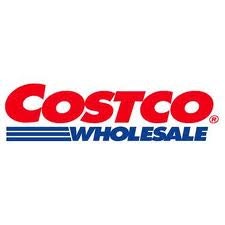In the investing world, we tend to focus on the numbers and big ideas, discussing concepts such as earnings, valuations, and leadership in our quest to assess the worthiness of a stock. And while those factors are certainly pertinent to investing theses, we tend to lose sight of the everyday functions of the business, and the front-line workers who make the work happen. As the recent fast-food strikes remind us, many of these workers are paid less than a living wage and need to work more than one job just to make ends meet.

Smart companies, however, know that investors come at the end of a virtuous corporate cycle that begins with workers. Happy employees will provide better service, which will lead to more-satisfied customers who spend more money, which will in turn provide greater returns for investors who are to free to reinvest their gains back into the company or take them somewhere else. In fact, many companies have incorporated this philosophy into their strategy and have gained a competitive advantage because of it. On Labor Day, the federal holiday where we rest and enjoy one last day of beaches and barbecues before unofficially closing out summer, it seems worthwhile to recall the oft-forgotten reason this holiday exists — to celebrate the economic and social contributions that workers have made to this country. In honor of this holiday, here are a few companies doing right by their workers.
1. Costco Wholesale Corporation (NASDAQ:COST)
When it comes to treating your workers well, perhaps no one does it better than Costco Wholesale Corporation (NASDAQ:COST). Unlike rival Wal-Mart Stores, Inc. (NYSE:WMT), which continuously receives bad press for low wages and worker abuses, as well as pushback from unions, governments, and other organizations, Costco Wholesale Corporation (NASDAQ:COST) is an exemplar of a corporation acting in harmony with its workforce. The warehouse retailer pays its hourly workers an average of more than $20 an hour, compared with less than $13 an hour at Wal-Mart Stores, Inc. (NYSE:WMT). Many more Costco Wholesale Corporation (NASDAQ:COST) workers also have health insurance, and pay less for it. In the words of Cesar Martinez, a forklift operator who’s been with the company 19 years: “The company gives you a decent wage and treats you with respect and takes care of you. That’ why we all give 100%.” The result of this strategy means not just better-performing workers and better customer service, but lower employee turnover and a more qualified applicant pool, as Costco Wholesale Corporation (NASDAQ:COST) is a much more desirable place to work than Wal-Mart Stores, Inc. (NYSE:WMT).
2. Whole Foods Market, Inc. (NASDAQ:WFM)
The high-end grocer known for its pricey organic produce, and in-house specialty foods, doesn’t skimp on employee wages and benefits, either. The supermarket chain offers employees low-cost health insurance, a chance to buy stock at a discounted rate, and profit sharing that rewards them for improvements in areas such as productivity and customer service. Whole Foods Market, Inc. (NASDAQ:WFM)’ hourly workers make about $15 an hour on average, well ahead of the norm for supermarkets. Co-CEO Walter Robb says the company pays employees more than it has to because it helps lower turnover and makes the company better as a whole. Whole Foods Market, Inc. (NASDAQ:WFM) calls this philosophy “conscious capitalism,” which, like stakeholder management theory, espouses the idea that a company will be most successful by creating value for all stakeholders as each party reinforces the other. On Glassdoor.com, employee reviews laud this approach and rave about opportunities for advancement and the ample benefits packages.





